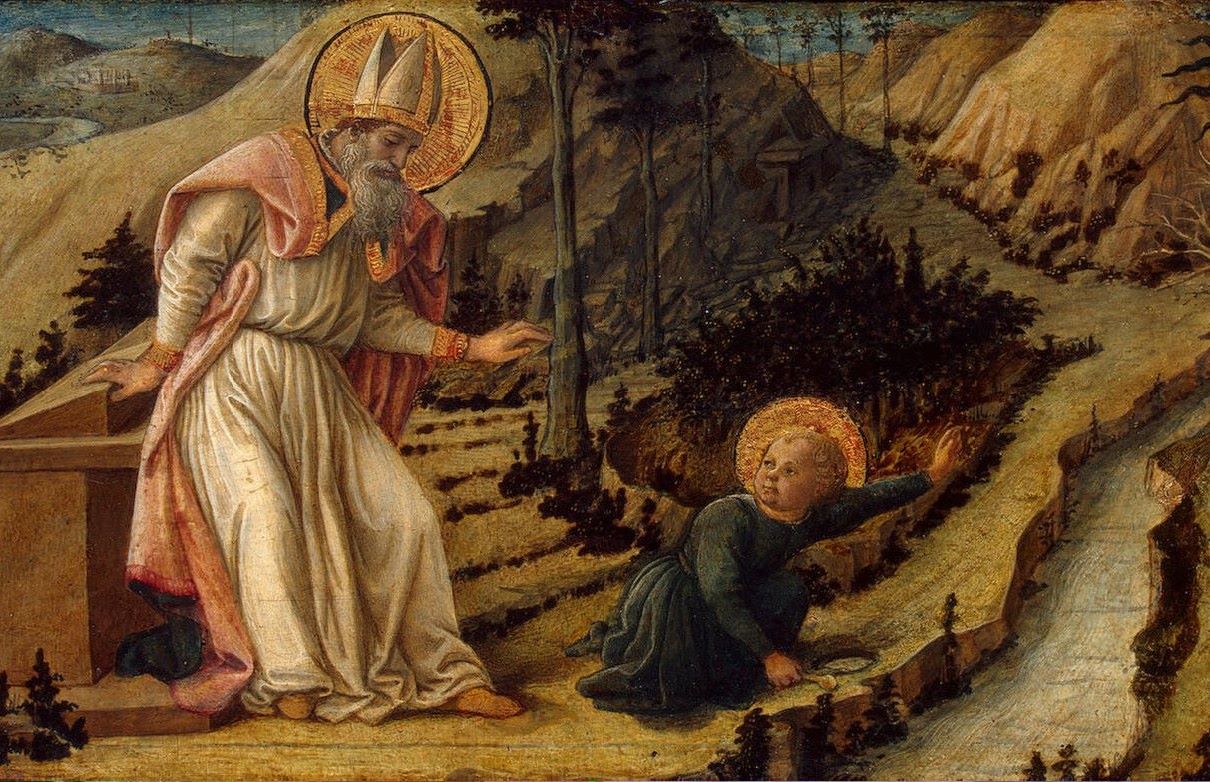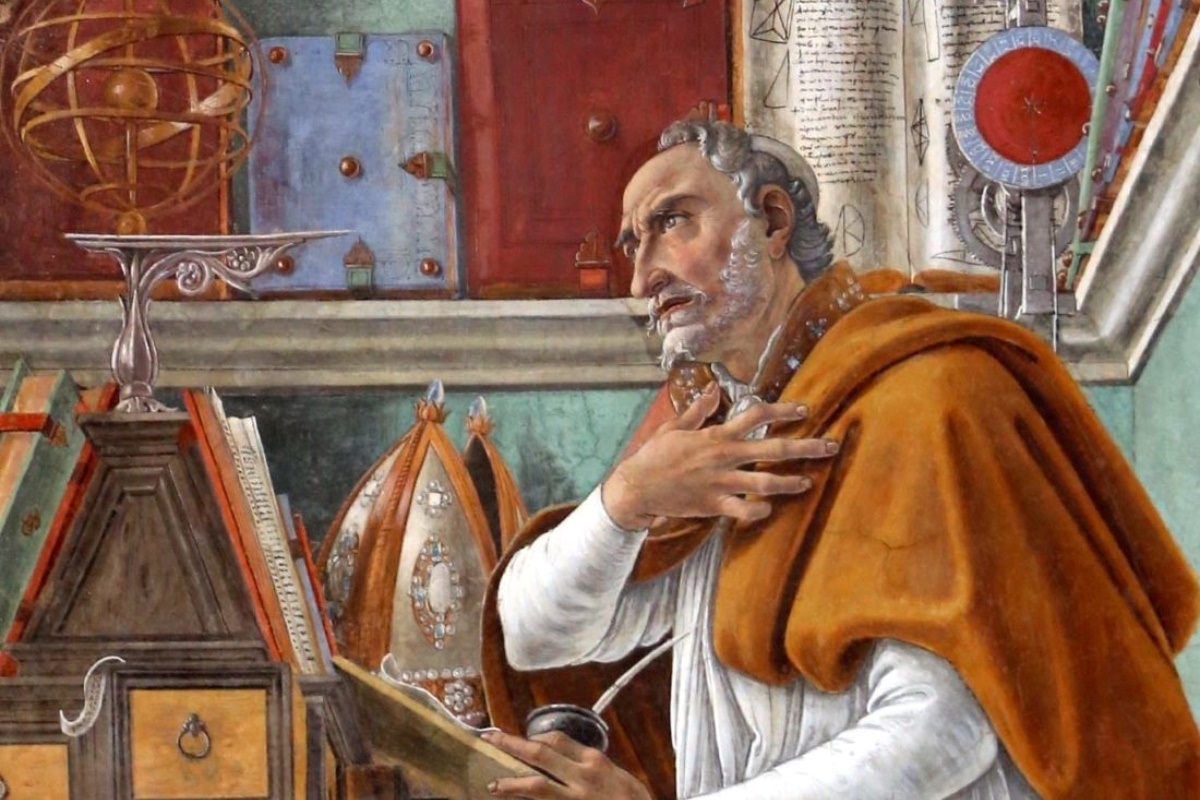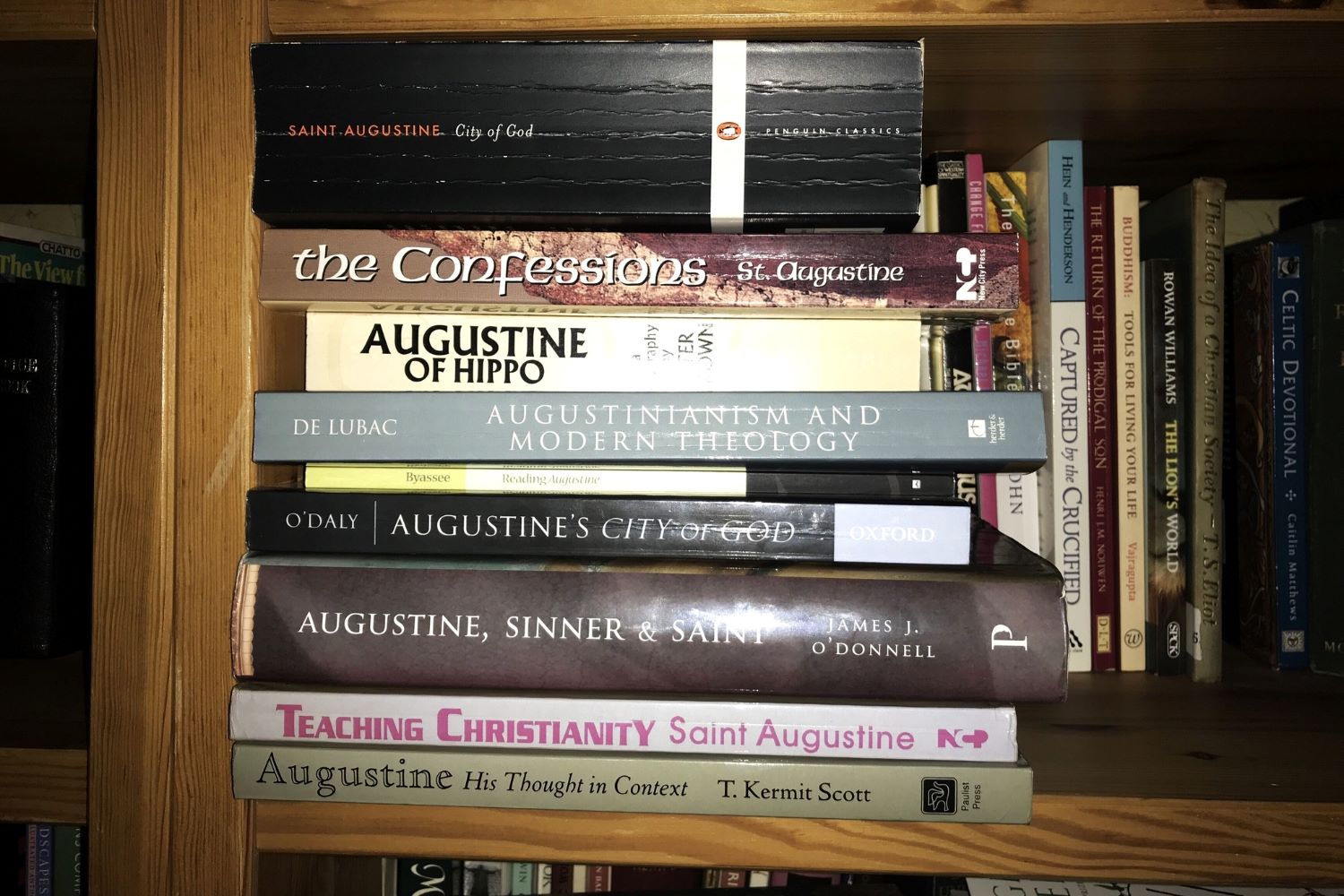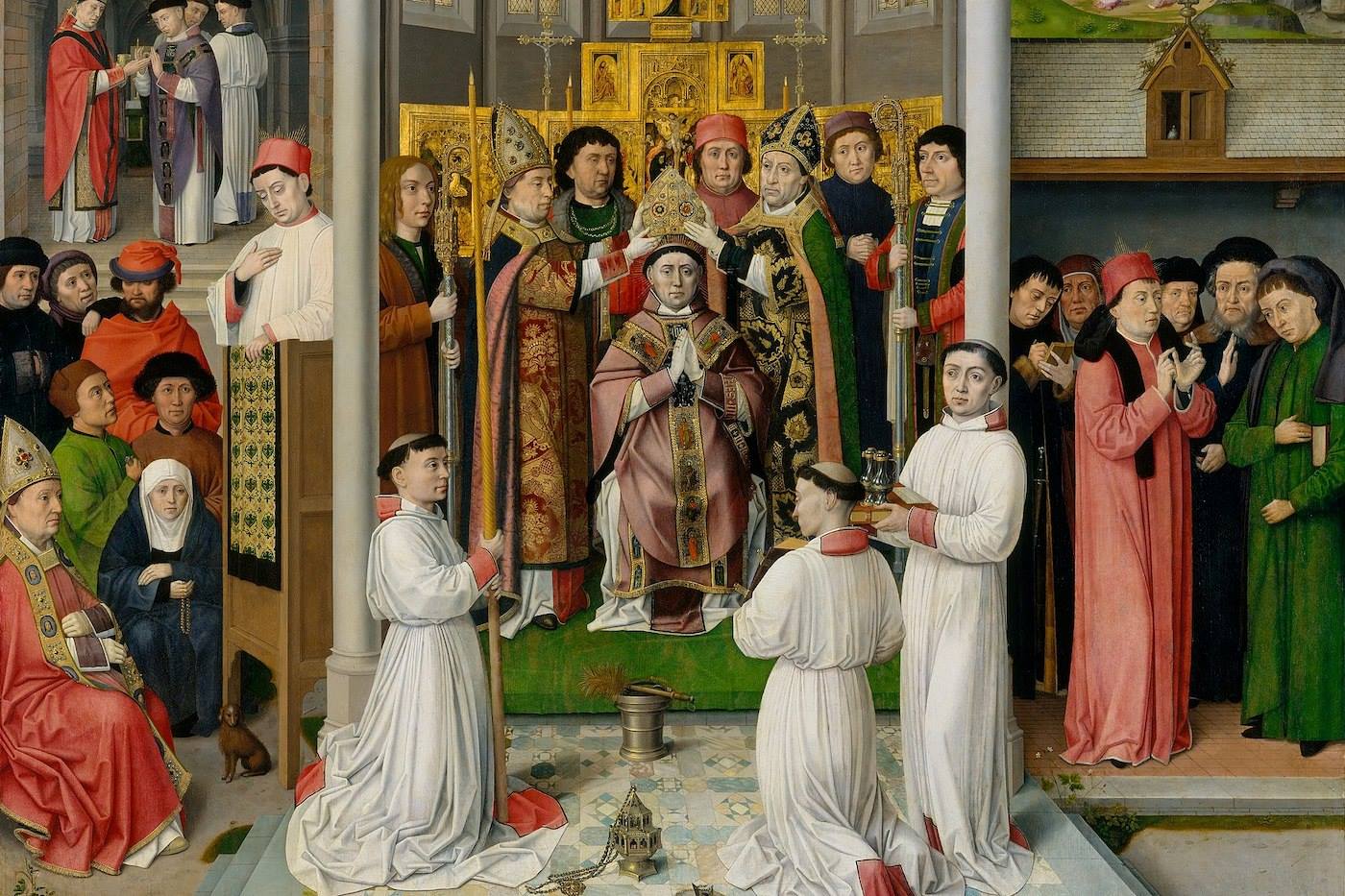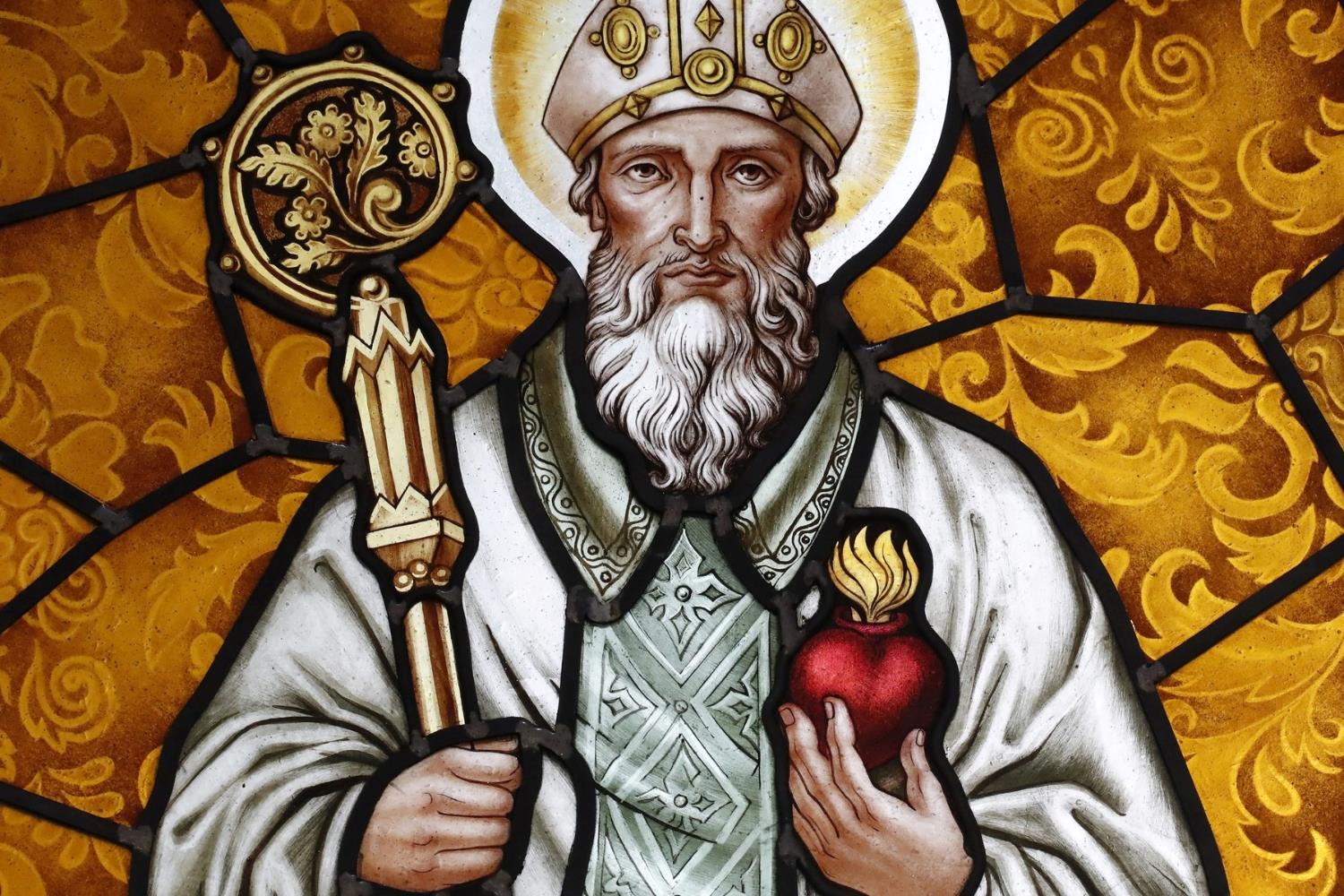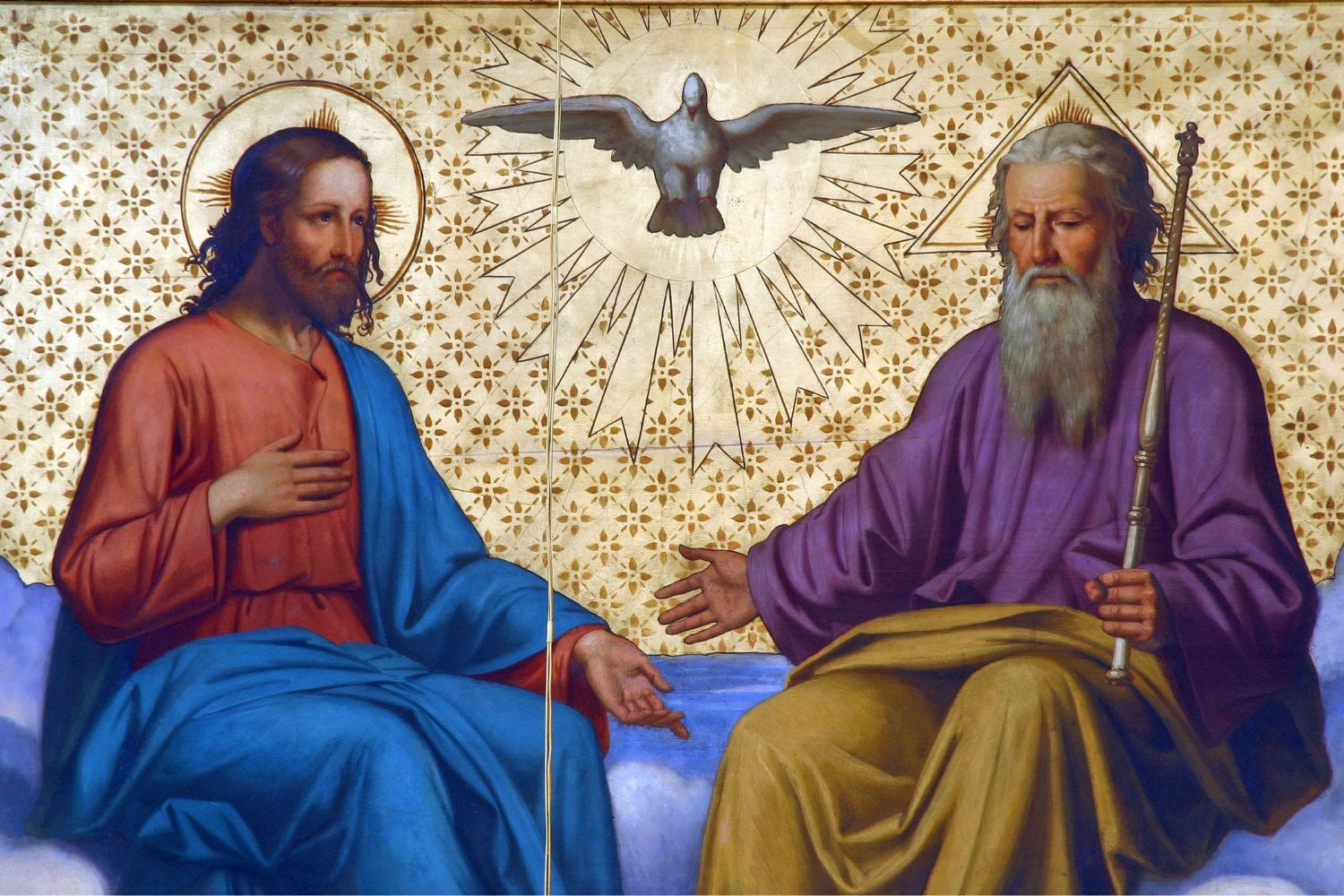Home>Theology and Spirituality>What Made Augustine Convert To Christianity
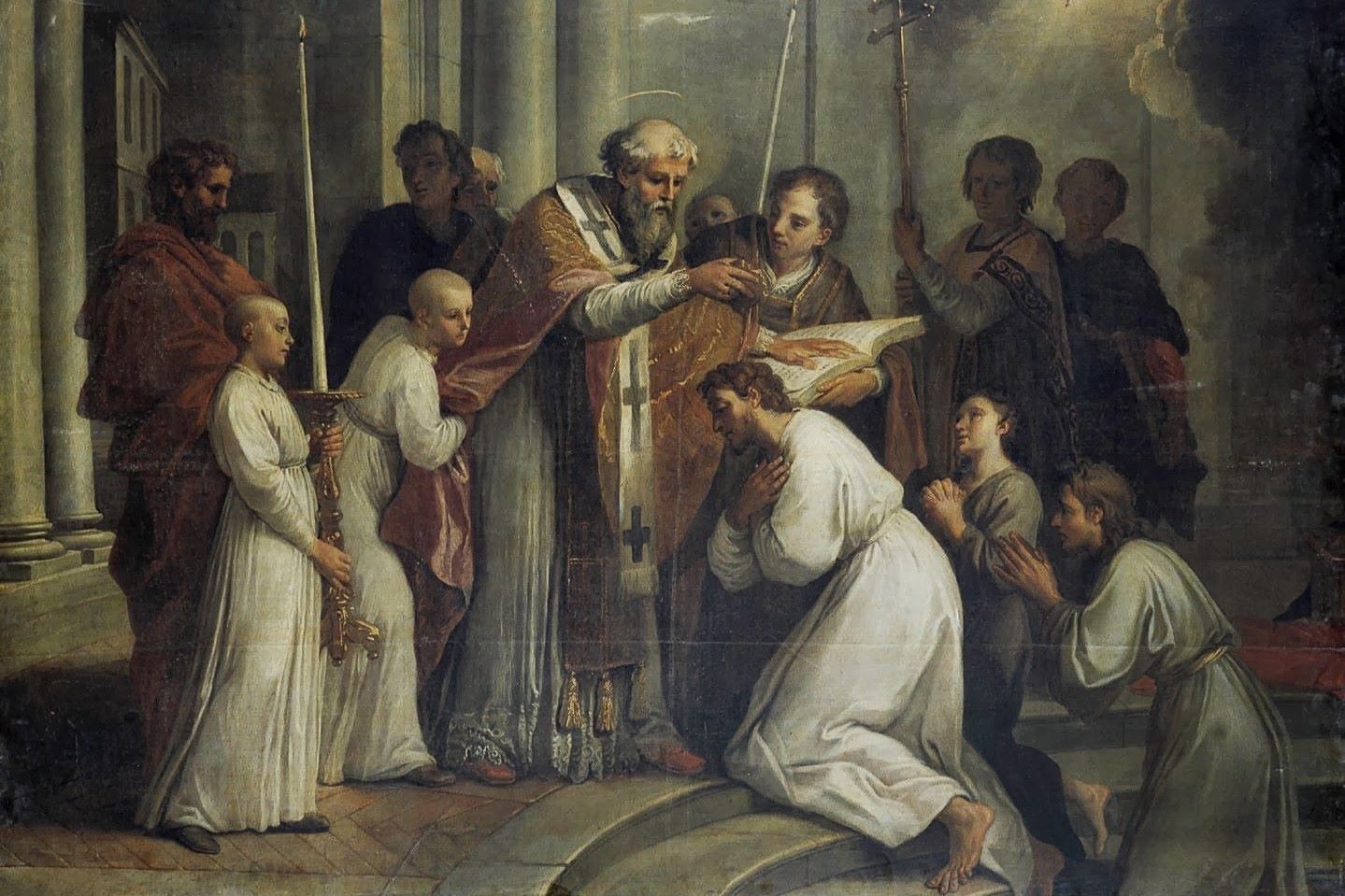

Theology and Spirituality
What Made Augustine Convert To Christianity
Published: February 10, 2024
Peter Smith, Editorial Director at Christian.net, combines deep insights into faith, politics, and culture to lead content creation that resonates widely. Awarded for his contributions to religious discourse, he previously headed a major organization for religious communicators, enhancing dialogue on faith's societal impacts.
Discover the reasons behind Augustine's conversion to Christianity and explore the impact of theology and spirituality on his life and teachings. Uncover the transformative journey of one of the most influential figures in Christian history.
(Many of the links in this article redirect to a specific reviewed product. Your purchase of these products through affiliate links helps to generate commission for Christian.net, at no extra cost. Learn more)
Table of Contents
Introduction
The conversion of Augustine, also known as Saint Augustine of Hippo, stands as a pivotal moment in the history of Christianity. His journey from a life of worldly pursuits to becoming one of the most influential theologians and philosophers of the early church is a compelling narrative that continues to inspire and intrigue people across the globe. Understanding the factors that led to Augustine's conversion provides profound insights into the complexities of human nature, the interplay of faith and reason, and the transformative power of spiritual awakening.
Augustine's conversion is a story of profound spiritual struggle and intellectual inquiry. It delves into the depths of human experience, grappling with questions of existence, morality, and the nature of God. His journey from skepticism and moral laxity to unwavering faith and moral conviction serves as a testament to the enduring relevance of his life and teachings.
The circumstances surrounding Augustine's conversion are multifaceted, encompassing influences from his early life, education, encounters with influential figures, and his own philosophical inquiries. By examining these elements, we can gain a deeper appreciation for the intricate tapestry of events and reflections that ultimately led to his embrace of Christianity.
As we embark on an exploration of Augustine's conversion, we will unravel the intricate web of influences that shaped his worldview and propelled him towards a profound encounter with the Christian faith. From his formative years in North Africa to his intellectual pursuits in rhetoric and philosophy, Augustine's journey is marked by a relentless pursuit of truth and meaning. This journey culminates in a momentous transformation that not only altered the course of his life but also left an indelible mark on the development of Christian theology and spirituality.
In the subsequent sections, we will delve into the various facets of Augustine's life and the pivotal influences that ultimately led to his conversion to Christianity. Through this exploration, we will gain a deeper understanding of the profound significance of his spiritual journey and the enduring impact of his legacy.
Read more: Top Famous Christians Who Have Converted
Early Life and Education
Augustine's early life and education laid the foundation for his remarkable intellectual and spiritual journey. Born in 354 AD in Thagaste, a provincial town in Roman Africa (present-day Algeria), Augustine was raised in a family with a strong Roman and Berber cultural heritage. His father, Patricius, was a pagan who held a high-ranking position in the municipal government, while his mother, Monica, was a devout Christian. This religious dichotomy within his family environment would later play a significant role in shaping Augustine's worldview.
From a young age, Augustine exhibited exceptional intellectual abilities and a voracious appetite for learning. His parents, recognizing his potential, ensured that he received a quality education. At the age of 11, he was sent to Madauros, where he received a classical education in literature, rhetoric, and philosophy. This early exposure to the works of Virgil, Cicero, and other prominent Roman writers instilled in him a deep appreciation for the power of language and the pursuit of wisdom.
Subsequently, Augustine pursued higher education in Carthage, a bustling center of learning and culture in the Roman Empire. It was during his time in Carthage that he encountered the teachings of the Manicheans, a religious sect that espoused a dualistic worldview. The allure of their philosophical doctrines, which seemed to offer a coherent explanation for the existence of evil in the world, captivated the young Augustine and left a lasting impression on his intellectual development.
Amidst his academic pursuits, Augustine's personal life was marked by a period of moral laxity and indulgence in worldly pleasures. His involvement in a tumultuous relationship and his adherence to the Manichaean belief system reflected the inner turmoil and spiritual restlessness that would later become central themes in his philosophical writings.
The formative years of Augustine's early life and education set the stage for the profound intellectual and spiritual odyssey that would unfold in the years to come. His insatiable quest for knowledge, coupled with the diverse influences that shaped his formative years, laid the groundwork for the transformative encounters and profound reflections that ultimately led to his conversion to Christianity.
This period of Augustine's life serves as a crucial backdrop for understanding the complexities of his intellectual pursuits and the profound impact of his early experiences on the trajectory of his spiritual journey. It is within this context that we begin to unravel the intricate tapestry of influences that would ultimately shape Augustine's profound encounter with the Christian faith.
Manichaean Influence
The influence of Manichaeism on Augustine's intellectual and spiritual development was profound and enduring. Manichaeism, a dualistic religious sect founded by the Persian prophet Mani, presented a cosmological framework that sought to reconcile the existence of good and evil in the world. This philosophical system captivated Augustine during his formative years in Carthage, leading him to embrace its teachings and become a fervent adherent of the Manichaean faith.
Central to Manichaean doctrine was the concept of a cosmic struggle between the forces of light and darkness, symbolizing the eternal conflict between good and evil. This dualistic worldview resonated deeply with Augustine, offering a compelling explanation for the presence of evil and suffering in the world. The allure of Manichaean philosophy lay in its seemingly coherent account of the nature of reality, providing a framework through which Augustine sought to make sense of the complexities of human existence.
The Manichaean influence on Augustine extended beyond intellectual fascination; it permeated his personal and moral outlook, shaping his perceptions of the human condition and the pursuit of spiritual truth. The allure of Manichaean dualism, with its emphasis on the inherent struggle between opposing forces, resonated with Augustine's inner turmoil and moral struggles, offering a sense of clarity amidst the existential uncertainties that plagued his consciousness.
However, as Augustine delved deeper into the intricacies of Manichaean doctrine, he began to grapple with its philosophical inconsistencies and the inability of its teachings to provide satisfactory answers to the fundamental questions that haunted his restless intellect. The limitations of Manichaeism in addressing the complexities of human nature and the nature of evil would eventually propel Augustine towards a profound reevaluation of his beliefs and a relentless pursuit of spiritual truth.
The profound impact of the Manichaean influence on Augustine's intellectual and spiritual journey underscores the pivotal role of diverse philosophical and religious encounters in shaping his quest for truth and meaning. The allure of Manichaean dualism, coupled with its ultimate inability to offer a coherent account of the human condition, would set the stage for Augustine's transformative encounter with the Christian faith, marking a pivotal turning point in his profound spiritual odyssey.
The influence of Manichaeism on Augustine's intellectual and spiritual development serves as a testament to the enduring impact of diverse philosophical and religious encounters in shaping the trajectory of one's spiritual journey. It is within this context that we begin to unravel the intricate tapestry of influences that ultimately led to Augustine's profound encounter with the Christian faith.
Influence of Ambrose
The influence of Ambrose, the esteemed Bishop of Milan, played a pivotal role in Augustine's journey towards embracing Christianity. Augustine's encounter with Ambrose marked a transformative period in his life, profoundly shaping his intellectual and spiritual trajectory. Ambrose's erudition, eloquence, and unwavering commitment to the Christian faith left an indelible impression on Augustine, igniting a profound inner transformation that would ultimately lead to his conversion.
Ambrose's remarkable oratorical skills and profound knowledge of scripture captivated Augustine, drawing him into a deeper exploration of Christian theology and doctrine. Augustine was deeply moved by Ambrose's ability to expound upon the profound truths of the Christian faith with eloquence and clarity. Ambrose's compelling articulation of Christian teachings resonated with Augustine's intellectual curiosity and spiritual yearning, sparking a profound inner resonance that would ultimately lead to his embrace of Christianity.
Moreover, Ambrose's exemplary life and unwavering commitment to the Christian virtues served as a compelling embodiment of the faith he professed. Augustine was deeply impressed by Ambrose's integrity, humility, and moral rectitude, which stood in stark contrast to the moral laxity and spiritual restlessness that had characterized his own life. Ambrose's virtuous conduct and steadfast devotion to the Christian path served as a powerful testament to the transformative power of faith, inspiring Augustine to embark on a profound inward journey towards spiritual renewal.
The personal interactions and intellectual exchanges between Augustine and Ambrose further deepened Augustine's appreciation for the richness and depth of Christian thought. Through their dialogues, Augustine gained invaluable insights into the profound mysteries of the Christian faith, grappling with theological questions and existential quandaries under Ambrose's guidance. Ambrose's mentorship and spiritual guidance provided Augustine with the intellectual and emotional support he needed to navigate the complexities of his inner struggles and philosophical inquiries, ultimately leading him towards a profound spiritual awakening.
The influence of Ambrose on Augustine's intellectual and spiritual development serves as a testament to the profound impact of mentorship and spiritual guidance in shaping one's spiritual journey. Ambrose's profound influence on Augustine's life underscores the transformative power of personal encounters and the enduring legacy of mentorship in the pursuit of spiritual truth and enlightenment. It is within this context that we begin to unravel the intricate tapestry of influences that ultimately led to Augustine's profound encounter with the Christian faith.
The Influence of his Mother, Monica
Monica, the mother of Augustine, wielded a profound and enduring influence on his spiritual and intellectual development. Her unwavering faith, fervent prayers, and steadfast devotion to Christian values served as a guiding light in Augustine's tumultuous journey towards spiritual enlightenment. From his formative years in Thagaste to his transformative encounters in Milan, Monica's profound influence permeated every facet of Augustine's life, leaving an indelible mark on his spiritual odyssey.
Monica's devout Christian faith stood in stark contrast to the pagan beliefs of Augustine's father, Patricius. Her steadfast commitment to the Christian path, coupled with her fervent prayers for Augustine's spiritual well-being, reflected a mother's unwavering love and unyielding determination to guide her son towards the light of faith. Despite Augustine's youthful rebelliousness and intellectual skepticism, Monica's steadfast prayers and unwavering faith never wavered, serving as a testament to the enduring power of a mother's love and the transformative influence of steadfast devotion.
Monica's pivotal role in Augustine's conversion is exemplified by her unwavering determination to seek spiritual guidance for her son. Her fervent prayers and tireless efforts to secure the intervention of influential Christian figures, such as Ambrose, underscored her unshakable resolve to lead Augustine towards the path of righteousness. Monica's unwavering faith and relentless pursuit of spiritual guidance played a pivotal role in shaping Augustine's receptivity to the Christian message, ultimately paving the way for his profound encounter with the Christian faith.
Moreover, Monica's exemplary life and virtuous conduct served as a compelling embodiment of the Christian virtues she professed. Her humility, compassion, and unwavering commitment to the Christian path left an indelible impression on Augustine, inspiring him to embark on a profound inward journey towards spiritual renewal. Monica's profound influence on Augustine's moral and spiritual outlook served as a catalyst for his introspective reflections and inner transformation, ultimately leading him towards a profound embrace of the Christian faith.
The enduring impact of Monica's influence on Augustine's spiritual journey serves as a testament to the transformative power of maternal love, unwavering faith, and steadfast devotion in shaping one's spiritual trajectory. Monica's profound influence on Augustine's life underscores the enduring legacy of a mother's love and the transformative power of steadfast faith in guiding one towards the path of spiritual enlightenment. It is within this context that we begin to unravel the intricate tapestry of influences that ultimately led to Augustine's profound encounter with the Christian faith.
The Role of Philosophy in his Conversion
The role of philosophy in Augustine's conversion to Christianity is a profound and multifaceted aspect of his spiritual journey. As a young man deeply immersed in the intellectual pursuits of rhetoric and philosophical inquiry, Augustine grappled with profound existential questions that lay at the heart of his spiritual restlessness. His encounters with diverse philosophical schools of thought, ranging from Manichaeism to Neoplatonism, provided him with a rich tapestry of intellectual influences that ultimately shaped his receptivity to the Christian message.
Augustine's philosophical inquiries served as a crucible for his inner struggles and existential quandaries, propelling him towards a relentless pursuit of truth and meaning. His immersion in the teachings of the Manicheans, with their dualistic worldview, offered him a compelling framework through which to make sense of the complexities of human existence. The allure of Manichaean philosophy, with its emphasis on the eternal struggle between good and evil, resonated deeply with Augustine's inner turmoil, providing him with a sense of clarity amidst the existential uncertainties that plagued his consciousness.
However, Augustine's philosophical inquiries extended beyond the confines of Manichaeism, leading him towards a profound engagement with Neoplatonic thought. The teachings of Neoplatonism, with its emphasis on the ascent of the soul towards the divine and the contemplation of the transcendent One, provided Augustine with a profound intellectual framework through which to grapple with the nature of ultimate reality and the yearning for spiritual transcendence.
It was within the rich tapestry of philosophical influences that Augustine encountered the profound insights of Neoplatonism, which served as a catalyst for his inward journey towards spiritual renewal. The Neoplatonic emphasis on the ineffable nature of the divine and the transcendent beauty of the One resonated deeply with Augustine's yearning for spiritual fulfillment, propelling him towards a profound reevaluation of his existential priorities and philosophical convictions.
The role of philosophy in Augustine's conversion serves as a testament to the transformative power of intellectual inquiry and the enduring impact of diverse philosophical influences in shaping one's spiritual trajectory. Augustine's philosophical odyssey, marked by a relentless pursuit of truth and meaning, ultimately led him towards a profound encounter with the Christian faith, marking a pivotal turning point in his spiritual journey. It is within this context that we begin to unravel the intricate tapestry of influences that ultimately led to Augustine's profound embrace of Christianity.
The Impact of Scripture
The impact of scripture on Augustine's spiritual journey was profound and transformative, serving as a catalyst for his profound encounter with the Christian faith. Throughout his intellectual and spiritual odyssey, Augustine grappled with the profound insights and moral imperatives conveyed through the sacred texts of the Christian tradition. The scriptures, particularly the writings of the apostle Paul, played a pivotal role in shaping Augustine's receptivity to the Christian message and illuminating the path towards spiritual enlightenment.
The profound impact of scripture on Augustine's spiritual awakening is exemplified by his encounter with the writings of the apostle Paul, whose profound insights into the human condition and the redemptive power of grace resonated deeply with Augustine's inner struggles and moral dilemmas. The apostle Paul's profound articulation of the universal human predicament, marked by the tension between the desires of the flesh and the yearning for spiritual fulfillment, struck a deep chord within Augustine's consciousness, compelling him to confront the complexities of his own moral struggles and existential uncertainties.
Moreover, Augustine's engagement with the scriptures provided him with a profound framework through which to grapple with the nature of divine grace and the transformative power of spiritual redemption. The scriptures, with their profound teachings on the redemptive love of God and the moral imperative of leading a virtuous life, served as a guiding light in Augustine's inward journey towards spiritual renewal. The scriptures illuminated the path towards moral rectitude and spiritual fulfillment, offering Augustine a profound sense of clarity amidst the existential ambiguities that had plagued his consciousness.
Furthermore, Augustine's engagement with the scriptures under the guidance of Ambrose, the esteemed Bishop of Milan, deepened his appreciation for the richness and depth of Christian theology. Ambrose's erudition and profound knowledge of scripture provided Augustine with invaluable insights into the profound mysteries of the Christian faith, nurturing his receptivity to the transformative power of divine grace and the moral imperatives conveyed through the scriptures.
The impact of scripture on Augustine's spiritual journey serves as a testament to the enduring relevance of sacred texts in guiding one towards spiritual enlightenment and moral rectitude. The scriptures, with their profound insights into the human condition and the redemptive love of God, played a pivotal role in shaping Augustine's receptivity to the Christian message, ultimately leading him towards a profound embrace of the Christian faith. It is within this context that we begin to unravel the intricate tapestry of influences that ultimately led to Augustine's profound encounter with the Christian faith.
Conclusion
Augustine's conversion to Christianity stands as a testament to the profound interplay of intellectual inquiry, spiritual yearning, and transformative encounters that shaped his remarkable journey. From his formative years in North Africa to his intellectual pursuits in rhetoric and philosophy, Augustine's odyssey reflects the enduring relevance of his life and teachings.
The multifaceted influences that propelled Augustine towards his embrace of Christianity underscore the profound complexities of human nature and the enduring quest for truth and meaning. His encounters with diverse philosophical and religious traditions, including Manichaeism and Neoplatonism, provided him with a rich tapestry of intellectual influences that ultimately shaped his receptivity to the Christian message.
The pivotal role of influential figures, such as Ambrose and his mother, Monica, further deepened Augustine's appreciation for the richness and depth of Christian thought. Their unwavering faith, moral rectitude, and steadfast devotion served as guiding lights in Augustine's tumultuous journey towards spiritual enlightenment, inspiring him to embark on a profound inward journey towards moral and spiritual renewal.
Moreover, Augustine's engagement with scripture, particularly the writings of the apostle Paul, illuminated the path towards moral rectitude and spiritual fulfillment, offering him a profound sense of clarity amidst the existential ambiguities that had plagued his consciousness. The scriptures played a pivotal role in shaping Augustine's receptivity to the Christian message, ultimately leading him towards a profound embrace of the Christian faith.
In conclusion, Augustine's conversion to Christianity exemplifies the enduring relevance of his spiritual journey and the transformative power of faith, reason, and moral conviction. His profound encounters with diverse philosophical and religious traditions, coupled with the unwavering influence of influential figures and the profound impact of scripture, culminated in a momentous transformation that not only altered the course of his life but also left an indelible mark on the development of Christian theology and spirituality. Augustine's conversion continues to inspire and intrigue people across the globe, serving as a timeless testament to the enduring quest for spiritual enlightenment and the transformative power of faith.
